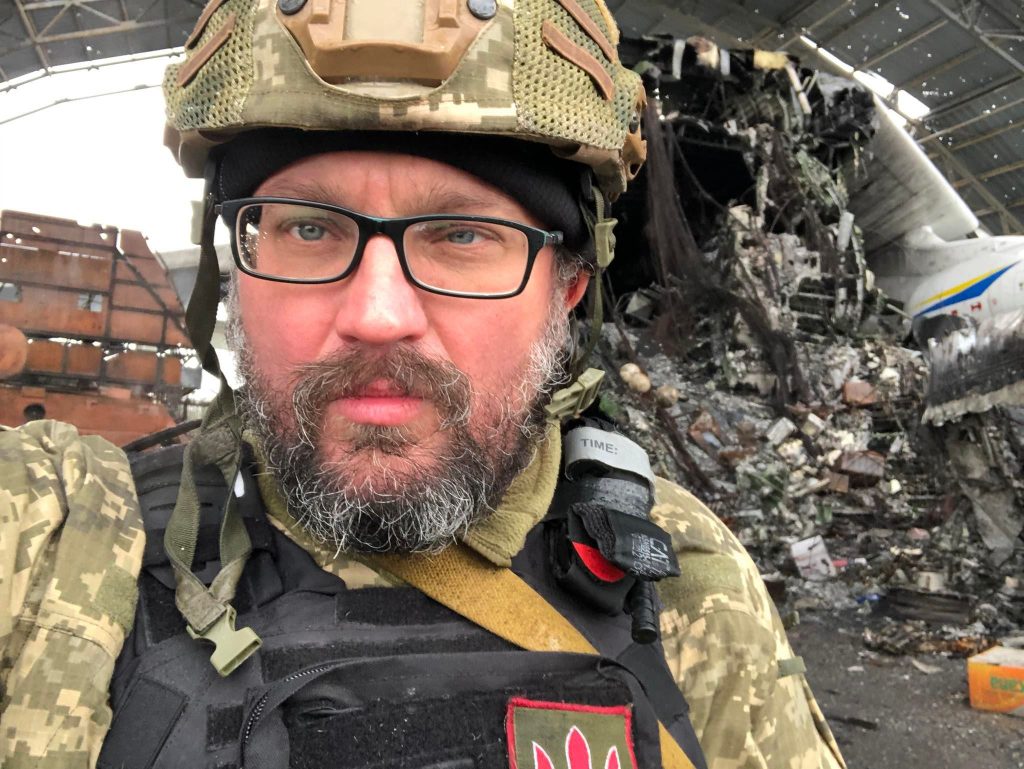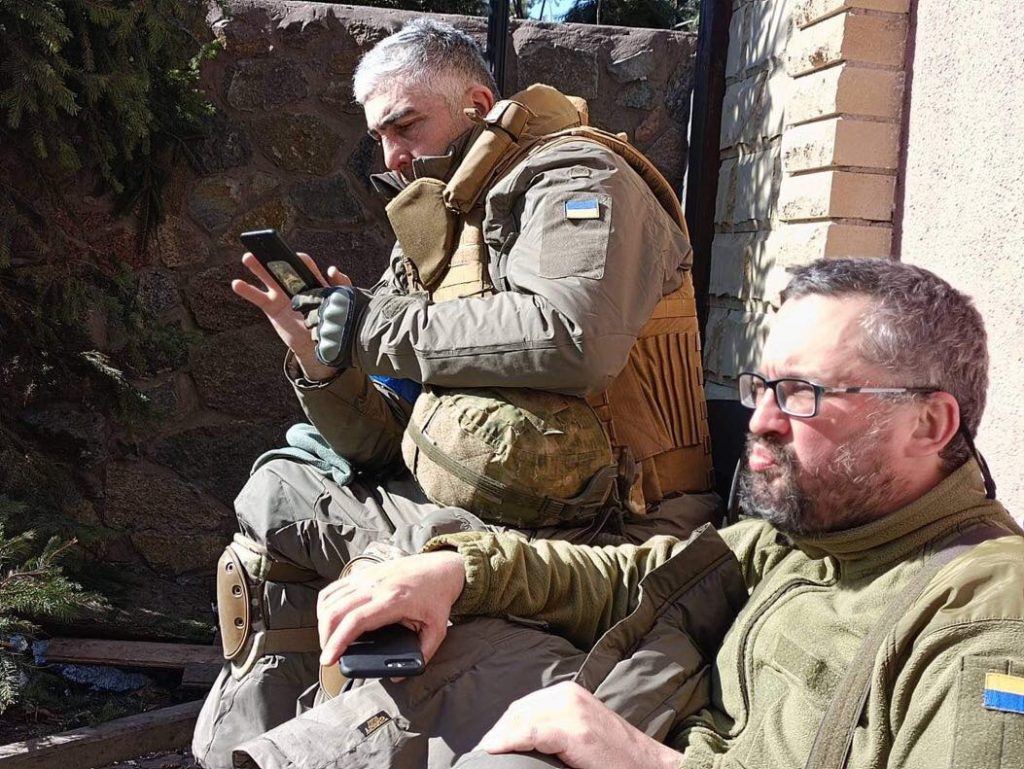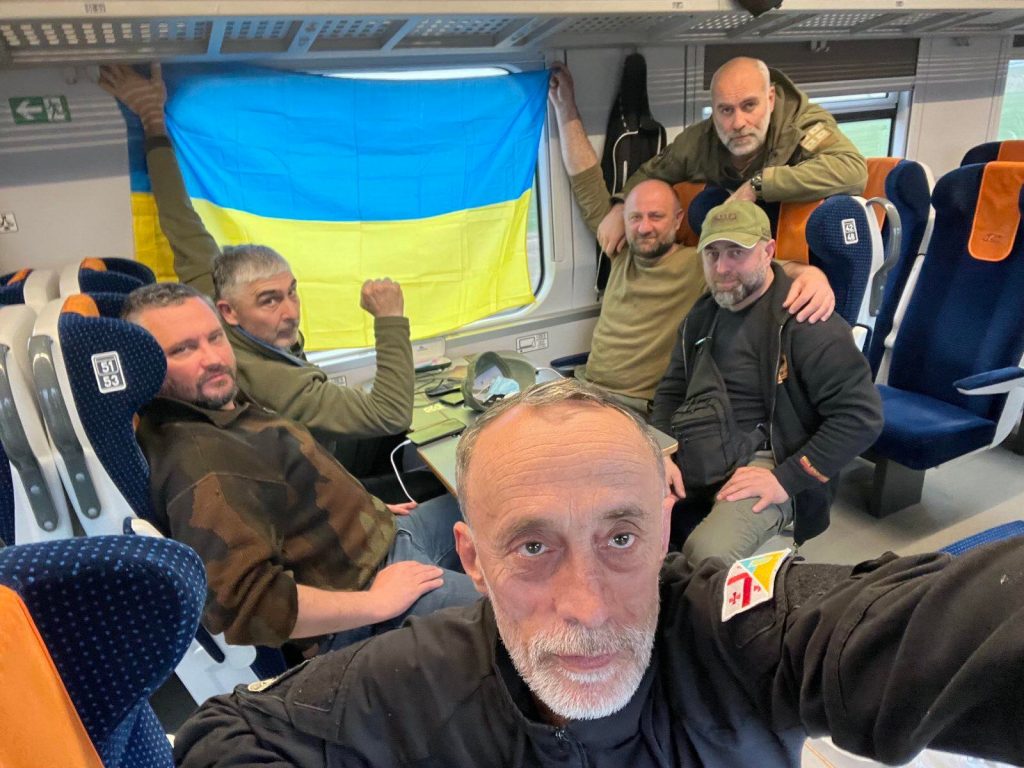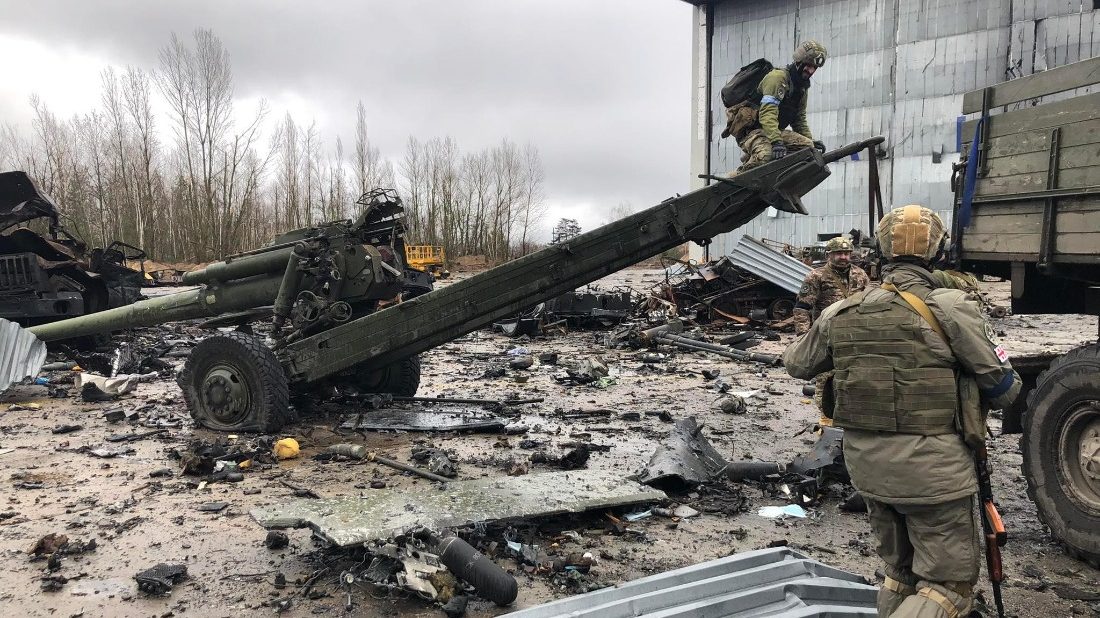Propaganda and disinformation have been fogging the lens of objective reporting from the minute Russian tanks rolled into Ukraine. So the story of Oleksiy Bobrovnikov, the exiled investigative journalist who was hounded out of his homeland and yet went back to fight, is especially remarkable.
A reporter whose work on crime and corruption brought with it threats and assassinations, he was driven out of Ukraine to Germany, where he lived in hiding. But when Vladimir Putin’s invaders rolled in, he returned to oppose them.

It is an act of courage, if one that some say has compromised his journalistic credentials forever. “This war is an existential threat. It is not about journalism any more,” he says. “We know what the Russians do – genocide, mass rape. It is horribly predictable. It is important to understand the mindset of these people, and you need to be close to them to understand how it is.”
Bobrovnikov had already seen danger close-up in 2015 while working for his local TV station on an investigation into a smuggling ring that involved the lethal heroin substitute known as Krokodil. His work implicated the Russian security service FBS, their Russian proxies in the Donbas and certain Ukrainian officials.
One day, he interviewed a source. A day later the source was killed.
Another source, Andriy Galushchenko, was a volunteer soldier serving with the Anti-Contraband Unit, a special unit of the police, military and security forces which has operated in the Grey Zone of eastern Ukraine, occupied by Russian-backed separatists, since 2014. In September 2015, he too was killed.
“Andriy was killed in a car that drove over an anti-personnel mine. He had been threatened and then he was assassinated. I should also have been in that car at the time. I had a bunch of confessions from him. I broadcast and aired a series of reports based on this investigation,” says Oleksiy.
Then, in 2016, his boss at the TV station told Bobrovnikov to stop digging into the story. He refused, so they fired him, forcing him to sign a resignation letter. Now stuck at home, he noticed he was under surveillance by men in cars parked outside his house. And then the death threats began.
Spooked, he went into hiding in Odessa. He stayed on the move, but was still summoned to a meeting with the Anti-Contraband Unit, apparently to threaten him. “I was shit scared,” he admits.
He urgently needed to find a place of safety, So Bobrovnikov applied to international organisations for help. In Hamburg, Germany, the Foundation for Politically Persecuted People offered him a residency. Reporters Without Borders offered to help other local reporters in Ukraine who had worked on the same investigation and were also receiving threats.
Even on the way to his new refuge centre in Germany, Oleksiy felt the need to take precautions in case he was being followed by potential assassins. He took a circuitous route, changing trains several times and booking tickets using false names.
Then, with financial support from the writers’ organisation PEN Germany, the exiled reporter continued to work on his story. The families and friends of murdered sources sent him the mobile phones and computers they had used to document the smuggling operation, and from these he was able to piece together how the smugglers were able to bring reclaimed gold, silver and counterfeit cigarettes in and out of the Grey Zone.
They also did a roaring trade in Krokodil, a morphine-based drug originally discovered in the 1920s, but which can be synthesised using over-the-counter medications containing morphine. It is, says Bobrovnikov, a dirty drug which has a devastating effect on the human body. And its use has been rife in Crimea, Luhansk and Donbas – all Russian-controlled territories – virtually from the moment the Russians took over.
Krokodil gets its nickname from the green or grey scaly, gangrenous appearance of addicts’ skin. It causes necrosis, a form of flesh-eating infection, and since it is a street drug, harmful additives are also cut into the injectable powder to increase profits. This makes it even more dangerous to users.
Yet despite his findings, Bobrovnikov says, the case was closed without any prosecutions. He continued to work on a screenplay, a book and for the independent Russian daily newspaper Novaya Gazeta. His next project, a video news podcast, was launched in the Georgian capital Tbilisi with a festive meal of khinkali – traditional meat-filled dumplings – on February 23, 2022. The next day, after weeks of build-up, Russian tanks rolled into Ukraine.
Oleksiy recalls: “The volunteer soldiers who were (already) gathering in Tbilisi said ‘will you go with us to Ukraine?’ I said ‘yes, of course, right away.’ I had to save my own life in 2016. And now I had to save my people. I would not let anyone go into the house of anyone – my ex-wife, my girlfriend, Nasta – the daughter of my source who was assassinated – anyone! We know about Russian soldiers raping and torturing.”
But although he and the other volunteers were ready and willing, the Georgian authorities were not. They blocked the flight that was meant to take the small platoon from Tbilisi to Poland. So instead they drove by car to Turkey, flew to the Hungarian capital, Budapest, and then on to Poland, arriving in Ukraine by bus on March 6.
They were a mixed bunch of foreign fighters – some natives of Georgia, a Brit from Scotland, an American, several Azeris and a Jewish volunteer from Israel. The others had battlefield experience already, whereas Bobrovnikov had only two weeks of basic training and was equipped only with a rifle, a helmet and a bulletproof vest.
The former reporter admits he is not a natural-born soldier. His eyesight is weak. Yet, like 1.5 million other residents of Germany, Oleksiy owned guns, with a licence for sport, and practised shooting in his spare time. And he could see well enough to perform his first role, deep within the woods with the international band of volunteers..
Bobrovnikov says his platoon was able to blow up a Russian tank, killing six to eight Russian soldiers. Yet the action drew enemy fire, and two volunteers also died.
“David Ratiani, a very fine soldier, a decent guy, was killed in mortar shelling by the Russians,” says Bobrovnikov. “We withdrew and they tried to take us on the flank. We rolled back and later we realised he had been killed. Both his legs were not there. And he had been hit in the head. The other casualty was also not breathing. It took us six hours to bring their bodies back under fire.”

Moving on to the airport at Hostomel, the platoon faced deadly danger of another kind. For six weeks, Russian and Chechen forces under General Magomed Tushayev had occupied the airport and the nearby town, holding thousands of local people as captives in their own homes, allowing them out only to smoke or to get water. Some later reports claim civilians were shot.
Oleksiy and his platoon from Georgia were taking part in a mopping-up operation after the Russian forces had withdrawn. Six of the platoon became gravely ill with kidney failure, caused by some kind of chemical poisoning. One possibility is that it was the fuel used in rocket-propelled grenades. Bobrovnikov suspects it was the nerve gas sarin.
“We know about war crimes from witnesses,” he says. “In Bucha, in Kherson, there are torture chambers that were used by the Russians. I personally did not talk to civilians and I am not a witness to war crimes. But the invasion of a peaceful land is in itself a massive war crime,” he stresses.

When it comes to conflicting versions of what happened – in Bucha or elsewhere – Oleksiy can draw on his many years of experience as a reporter and fact-checker as well as his months on the frontlines.
“You’ve got to do a lot of verification. When you don’t know, you don’t say, so as not to give false information. We are able to use international observers from Iraqi Kurdistan, from the USA, and daily columns,” he explains.
Now writing about the war as a special correspondent for the relaunched English-language Kyiv Post and interviewing experts and politicians for his podcast on YouTube, Bobrovnikov has ceased active military service – for now. But that could soon change. Oleksiy knows from his sources that a new offensive is coming and that there may soon be a pressing need again for volunteer soldiers, on a different front, in the depths of winter with the weather also allied against the defenders of his homeland.
He says: “In Belarus ,they are getting ready for combat – we know this from the exiled opposition here. Lukashenko and his cronies are recruiting fighters. It is hard. But morale is high. There is war raging, but we are in a way better position now. We are ready.”










